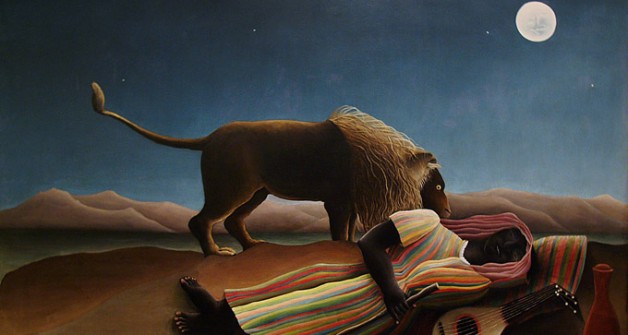Saint Thomas Aquinas at times uses a delightful expression, quies contemplationis (the quiet or rest of contemplation). This mysterious quiet of the soul was also used to describe Saint Dominic. Dante Alighieri speaks of Dominic as a young boy in the twelfth Canto of the Paradiso:
Spesse fïate fu tacito e desto
trovato in terra da la sua nutrice,
come dicesse: ‘Io son venuto a questo’.
(“Many a time did his nurse find him silent and awake on the ground, as if he said, ‘It is for this I have come.” )
The light of divine contemplation came for Saint Dominic in the dark night. He rarely slept – he did not even have a bed – preferring instead to remain awake in prayer the whole night, in the chapel, where the brethren often found him – on the ground, prostrate, and in the dark. Saint Dominic displays for us that the faithful soul – eventually – finds himself praying in darkness. Dominic’s dark night reminds us of the obscurity of faith, and Aquinas’ quies contemplationis gives us a crucial insight into the hidden life of Saint Dominic – that a faithful peering into the divine life demands a remarkable quietude.
Dominic received tremendous graces in the dark night. His life gives Christian testimony to the hidden and mysterious graces that are poured out as a fruit of Our Lord’s death on the Cross and His descent into the pit of darkness. God first seduces us with sweet and delectable graces; He converts us with fervor and zeal. However, winter soon arrives and God takes the soul into the desert, into the dark night. Saint Dominic’s prayer in the night shows us that God takes us into the darkness deliberately, and joyfully.
Saint John of the Cross – himself a student of St. Thomas Aquinas – teaches that God acts most powerfully in our lives when we are passive. Here God acts hiddenly. Aquinas says that this is the ordinary path prescribed by Christ, by which we are made perfect. God is present with us in the darkness, and He takes us there. Many souls are lost because, having been led into the dark night, they abandon the path, not knowing how to remain in quietude, shrouded in darkness. The soul must learn the language of the night and find God there.
Dante puts these words on the lips of Saint Dominic: “It is for this I have come.” It seems that Dante was giving poetic expression to Saint Dominic’s love of contemplation’s quiet in the night.
Image: Henri Rousseau, The Sleeping Gypsy







